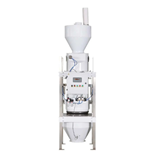Our lives are digitised, changing as quickly as a webpage loads. Society fragments at this pace of change, so how can it keep up?
The latest issue of ATSE Focus (Focus 205) navigates our new tech-centric society, with insight from people at the head of the wave.
The writers’ collectively probe digitisation of the economy, assessing the opportunities available to us, including in artificial intelligence and defence technologies.
University of South Australia Emeritus Professor Mike Miller AO FTSE and University of Technology Sydney Deputy Vice-Chancellor and Vice-President (Innovation and Enterprise) Professor Glenn Wightwick FTSE explain how our digital future depends of preparing industry and society for change.
They write that matters at the forefront of technology development – cybersecurity, ownership of data, ethics and privacy – must be addressed before they become issues.
And for the economy to thrive, industry must update or perish, writes Professor Göran Roos FTSE, a strategic advisor to the Defence SA Advisory Board.
“During each major shift there will be a gale of creative destruction. This means individual firms and other types of organisations must choose to adopt these new technologies and change the way they create value, or be expelled from the market they operate in.”
Professor Mary-Anne Williams FTSE, the Director of Disruptive Innovation at University of Technology Sydney, explores how data influences robot systems and what still must be done for robots to prosper.
“Robots, according to the McKinsey Institute Report, are a disruptive technology,” she writes.
“But before robots can wreak the expected havoc on business, society and the global economy, a wide range of pressing scientific and engineering challenges must be addressed. In lab conditions, robots can perform breathtaking feats most humans can’t do. Out in the wild, however, they have often failed when deployed in real-world settings.”
Honorary Fellow at DST Group in the Department of Defence Dr Jackie Craig FTSE discusses the evolution of military capability.
She delves into the changing threat landscape, electronic warfare systems and the developing ‘mind craft’ needed by those researching, planning and operating against such a backdrop.
“Digital technology, combined with other technology advances, is fuelling the emergence of improvised threats,” she writes. “And there are almost limitless possibilities for surprise.”
Want to comment on this topic? Click 'Have Your Say' and add your thoughts.
















